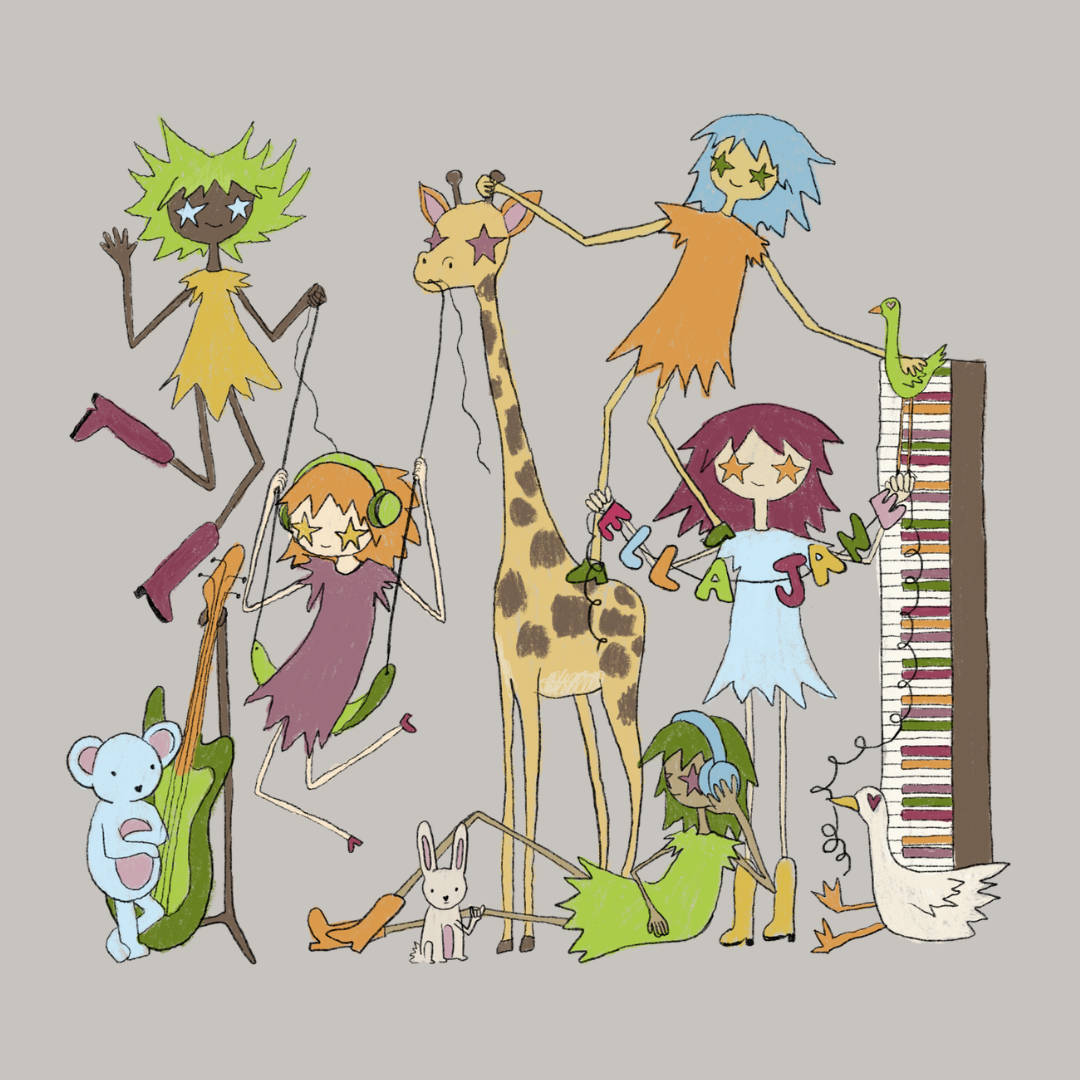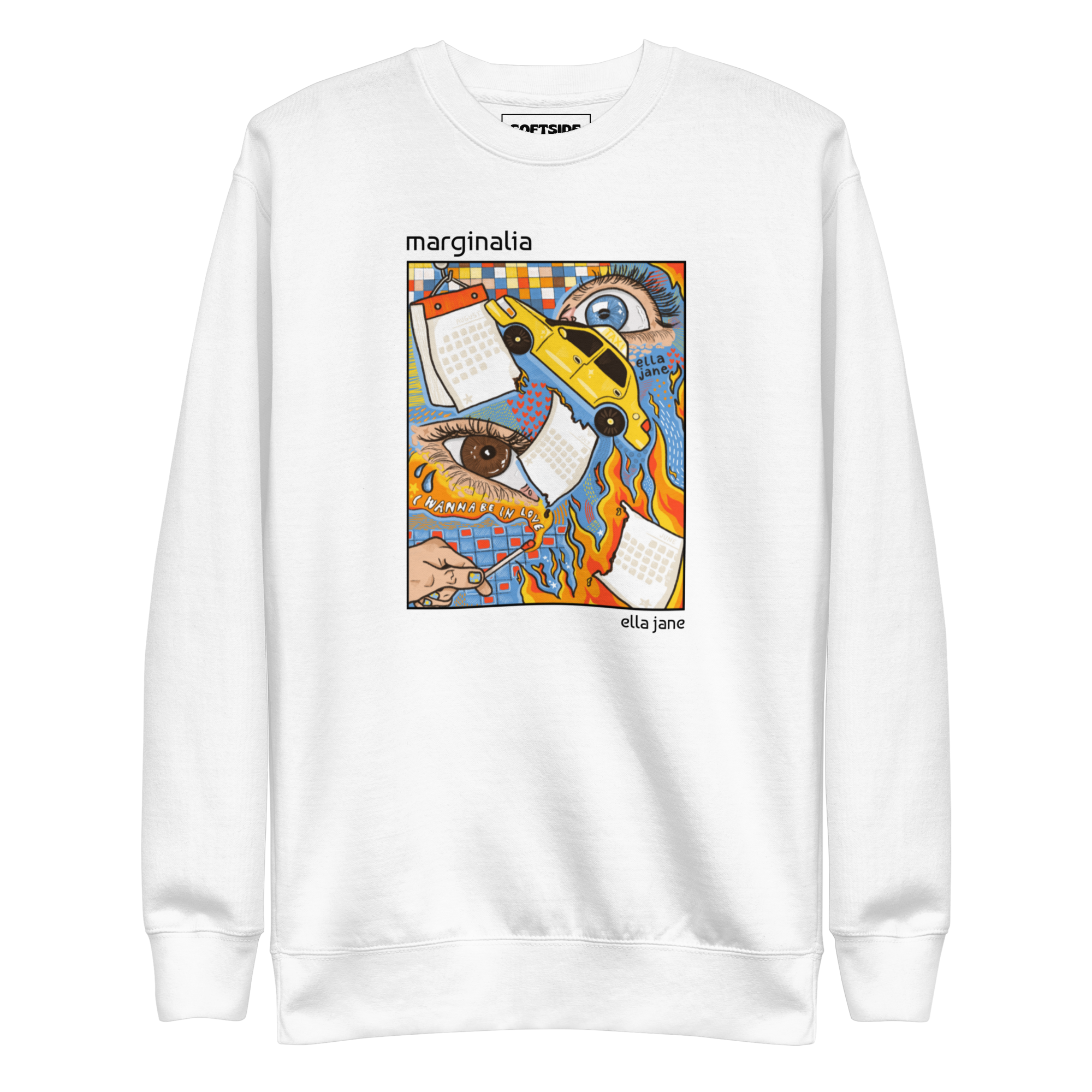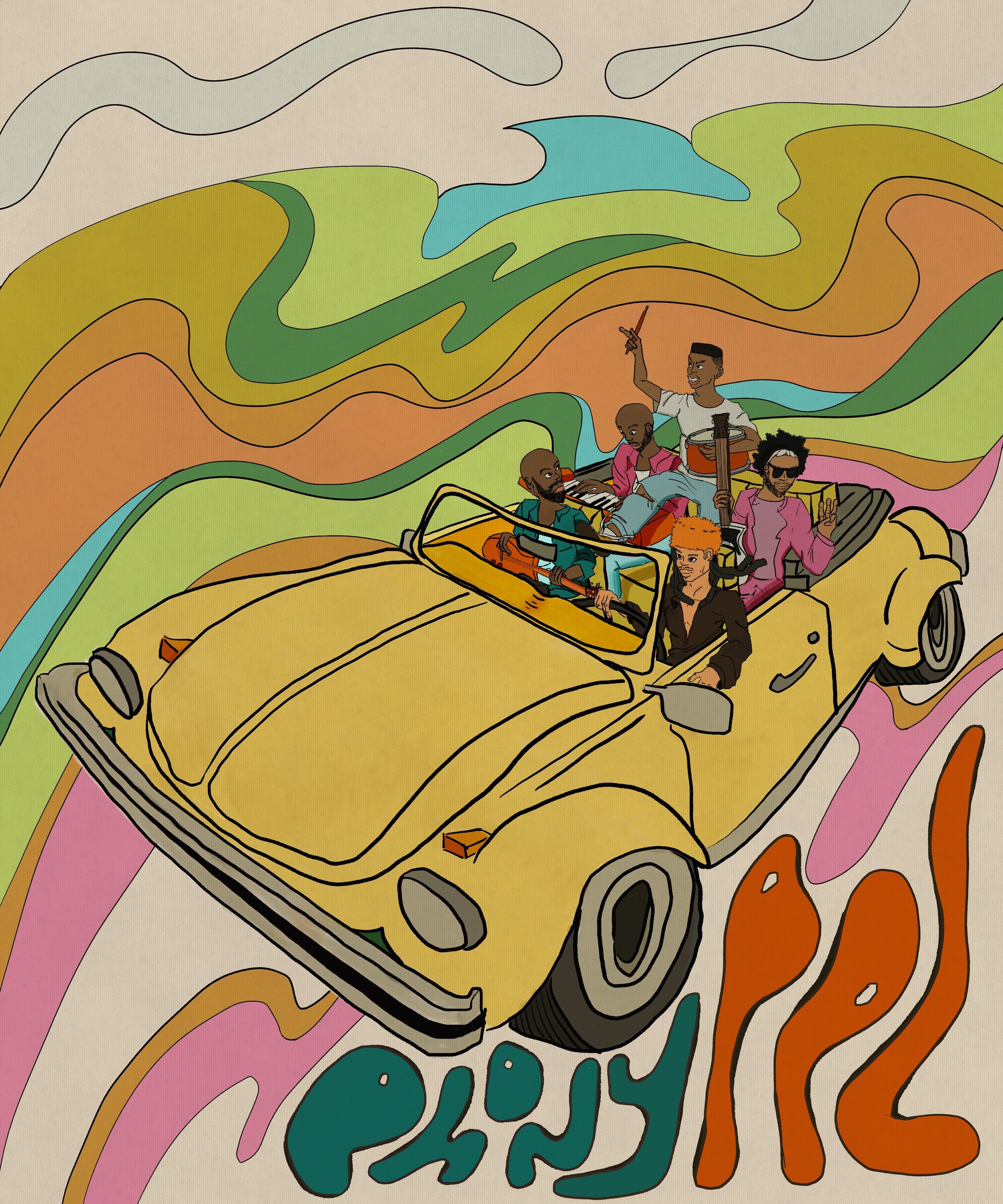Pivots, Reinvention, and Being Open to Trying: Interview with Erin Singleton, Founder & CEO of Softside
Erin Singleton is the founder and CEO of Softside, a platform that connects music artists & creative fans via officially licensed, fan-designed merchandise partnerships.
Before starting Softside, Erin was on the cusp of realizing her dream of becoming a talent agent…only she’d realized that dream wasn’t what she wanted anymore. She pursued a new role in A&R at Mom+Pop Music before making the call to turn the percolating idea of Softside into a business.
My conversation with Erin reminded me of the importance of being open to pivots throughout life and the freedom that comes with reinvention. I spoke to her about:
What it was like to take the leap and start Softside
The liberation of pursuing a new dream
How passion drove her through the first year of starting a business
Emphasizing trying over the fear of failure
The importance of walking and staying connected to others
Scaling into the next chapter
Note: The following interview has been lightly edited for clarity and length. While every effort has been made to preserve the integrity of the conversation, please be aware that the quotes may not be verbatim but reflect the essence of the dialogue.
What are you up to in life right now?
I am currently building my company, Softside, which I’ve been building for the past couple of years. I am past the point of launch but at the beginning stages of scaling. It’s an interesting point in that some systems are in place, there are things rolling, and certain things are not as scary anymore, but at the same time, there are new things that are intimidating as I tackle new challenges. I feel like I am leaping from one hill onto the next mountain.
What was the period in your life like before you decided to start Softside? What made you finally decide to take the leap?
I was working at a major talent agency for a number of years and I loved it. I had wanted to work in live music since I was about 16 years old. I was essentially working my dream job and close to being promoted to the agent title. That was the dream. I was fortunate to retain a job working in live music during the pandemic, but at the same time, it was a lot of added work because of all the layoffs that were happening. It was a challenging time just trying to stay afloat. I started to feel burnt out, as many people did during the pandemic, and I realized that I wanted to pursue a different kind of work. As much as I love live music and working on the agency side, it is essentially a sales job with a lot of rinse and repeat sales to book tours. I knew I wanted to stay in music but was seeking something more creative.
When I left, I briefly got a job at Mom+Pop Music as an A&R at the label. It was a cool experience because it was an awesome label with so many incredible women leading the way. But ultimately, after a few months, I realized that A&R wasn’t what I’d been looking for. I went from working at a job for 4 years to only being somewhere a few months. It was definitely a struggle to accept not loving what I wanted to love. Hypothetically, when you leave a job you hope the next one is “it.”
I had been thinking of Softside as an idea when I took that job, but I’d put it on the shelf. When I left Mom+Pop, I had nothing lined up. I didn't want to waste their time and I didn't want to waste mine either. I wanted to leave on good terms. I essentially said, “Okay, I can go look for another job in another line of work or I could give this idea a shot.” I had nothing tying me down as far as a mortgage or kids or anything that would make it hard to start a new company. I figured it was now or never. So, ultimately, it arose from a series of decisions about figuring out what I would do next combined with the right timing I suppose.
What would you say to people who are in a situation similar to where you were? People who have maybe left or are leaving a job and want the next one to be the forever thing. What would you say to them to take the pressure off the next thing feeling like an end-all/be-all decision?
I would tell them it's very liberating to move away from something that you put so much thought and emphasis on for so long. From age 16 to 26, I’d told people that I wanted to be a talent agent, and then, when I was about to leave, I was so close to the end goal and it didn't really matter anymore because my interests had shifted. Even though that was disappointing, I didn't get to that goal by my own choice. It was liberating, I think, to take that pressure off, not put myself in a box, and realize that anything is now ahead of me. The A&R job was not exactly what I wanted to do so I had to reassure myself, “You can’t go from A to Z overnight. Sometimes you have to bounce from A to B to C, and you have to keep pivoting until you get to that place that you really want.” It took the pressure off to realize that life is a bunch of pivots and it’s okay to not have the same job your entire career. You can enjoy one pivot and then if it doesn't serve you anymore, you can choose to move on. We have so many beautiful experiences we can enjoy in this world — I can see myself reinventing myself throughout my lifetime. So my advice is: Take the pressure off, view the decision in terms of: What do I want to do right now? Focus on that because, like me, you might change your mind overnight on something that you were set on for 10 years.
What was your first year of building your business like?
I was so passion-driven that I almost forgot that I was building a business. I obviously want to make money and a livelihood from building it but passion really took over. It was all I would think about morning, night, in my sleep….the pure adrenaline behind that passion took away some of the scariness. There was a little bit of delusion that came from building something that I was so excited by and wanted the whole world to be excited by too. I’d get to certain points where I’d need to figure out things like sales tax or a more technical problem, but I viewed those things as checkmarks that I needed to figure out, as opposed to something as daunting as, “Oh, my God! I'm building a business. How do I do that!?” The passion really drove the process in the beginning.
I think some people get a business degree and decide, “Okay, now, I'm gonna go build a business. What should my idea be?” There are people who have been wildly successful doing that and it’s awesome to see, but I never really had that thought. I had an idea and then started building a business around it. I think that made it a more palpable cause. The hard things started to come up and I started just tackling them as they came. So long story short, it was a lot of adrenaline and excitement.
What was it like when you started talking to artists and their teams? What did it feel like to put your idea out more publicly?
I made it very clear to people that this was something that I felt really strongly about. There was a lot of storytelling involved. A lot of, “Here's my idea and here's why you should be excited about it too. Here’s why I think your artist is perfect for it and here's why I think their fans are perfect for it.” I wasn’t trying to sell them anything that I didn’t really believe in. I’d done a lot of digging into the exact type of artists who had a community of fans that would be really into this. A lot of the conversations were just honest conversations. They weren't about the numbers or the systems or how it worked or the technical deliverables. I was selling the idea. Once they were sold and could understand why it would benefit them, then we could get into things like contract terms and the deliverables.
Getting to that point of seeing it click and having someone start asking questions from excitement, rather than skepticism, is the hardest part in the beginning, especially when handling it all as a solo founder. I had to kickstart everything with storytelling. I told managers that there are communities out there who love their artists, who are inspired by their artists, and who are now making fan art and sharing it. I sent them artwork their fans had submitted and showed them Tiktok and Etsy links full of this kind of artwork. That informing process is important.
What are the biggest evolutions you’ve felt as an entrepreneur since you started Softside?
I started working on Softside in January 2022. We launched in September so it’s been about a year since launch. Now that I'm working on scaling it, I’m talking to people about an initial seed round to expand the platform. The passion is still there, just as much as it was at the beginning, but now it's more tactful. The pre-launch phase is so passion-driven by just wanting to get your product out the door and wanting everyone to see it. Now I’m more heads down focused on strategy. But there's been a lot of growth in that, too, because I've had to really educate myself on every possible thing that I don't know. I feel like it’s almost like getting a business degree with a lot of webinars and Linkedin networking and Youtube videos. I’m trying to inform myself on every step of the process and get it right.
What’s your perspective on the fear of failure? What would you say to someone who is afraid of going after their passion because of that fear?
The fear of failure doesn't go away. It just manifests itself in different ways. I started feeling it more later on. The more successful something becomes, the scarier that next step is. You want to linger in what’s comfortable. I think you have to look back at everything you've done to reach that point. If someone is nervous about trying because they don’t want to fail, I think of the cheesy line: You’ll never know if you don’t try. I always suggest making that leap of faith. If you need some sort of validation, look at everything you've already done. You can look at things like jobs you’ve had and promotions. But I also think metrics of success come outside the workplace: Who are you as a person? What do you want to drive you?
Ultimately, I think taking that leap is important because you really won't ever know unless you try. And then from there, you have to keep relying on what you've done thus far to push yourself to that next step. In the beginning, I gave myself a timeline. I’d give myself two years and if didn’t work out I’d find a job. It'd be really disappointing to have to close things up, but I could always go interview and get another job. And that's fine. I'm still pushing ahead with that same mentality of “just keep trying.” If it doesn’t work, you have a long life to work. No doubt at some point, you have to make money again. So whether it's in the success of your startup or you are going back to go get a job, you’ll be okay.
What strategies or mindset shifts do you use to shake off a bad day?
I have a little note above my computer. It's very corny but it really does help me. It says: did you move today? I need to walk every day. I have noticed a dramatic mental shift in the afternoon if I haven’t walked that day. Walking and realizing that life's going on, and having the clarity that the problem probably wasn't as big as I thought it was, has been important for me.
As a solo founder, I realize that as great as it is to talk on zooms or on the phone, I do need to get up and actually talk to humans. I don't have coworkers right now. I've hired people freelance, but I don't have an actual team at the moment. I think talking to people, whether it's your partner or your friends or your parents, whoever it is, is important. When you are looking at something by yourself all the time, you need those extra eyes. I've relied on my partner to look at something and honestly answer, “What would you think of this?” Even though he's not in my line of work, he'll be like, “Oh, no, that makes perfect sense.” It gives me validation that it didn’t just make sense in my head. Those have been my two things: going outside and talking to people. It sounds so simple but when you're grinding for a really long time and putting your head down all day, you really do forget to do basic things like taking care of yourself. It’s amazing how much less dire things seem after 10 minutes of being outside.
I've always been someone who kind of burns a candle at both ends. I work really late and I wake up early. When I do that I'll get pounding migraines and they'll take out a whole day of work. I realized that it ended up being more detrimental for me to work really late every night. I’d have a whole day of work taken out because I’d gotten physically and mentally sick from overworking. Now I'm trying to create better boundaries. I end up doing better creative work and mental work when I take pauses and breaks and go for walks.
What’s next for you?
I'm excited for this next chapter of Softside. In the beginning, the focus was curated partnerships to demonstrate an initial proof of concept and proof of interest from both music artists and fans. Now we're moving into the next phase in which we’re actively transforming the model into a SaaS platform with a number of exciting developments & features. The new version of the platform will allow more artists, more fans, and more merch. I’m looking forward to seeing the technology expanded and begin hiring help to support operations after we finalize funding. As scary as the next set of challenges are, I'm also thrilled by them. Once you get too comfortable, you have to look at how you can grow into the next step.
Art & Photo Credits
Polaroids courtesy of the promo for Softside’s first drop. They are taken by Deanie Chen.
Band/animal illustration created by Fia Rose for Ella Jane
Crewneck created by Kait Dugan for Ella Jane
Car graphic created by Whitley Wilburn for Phony Ppl









